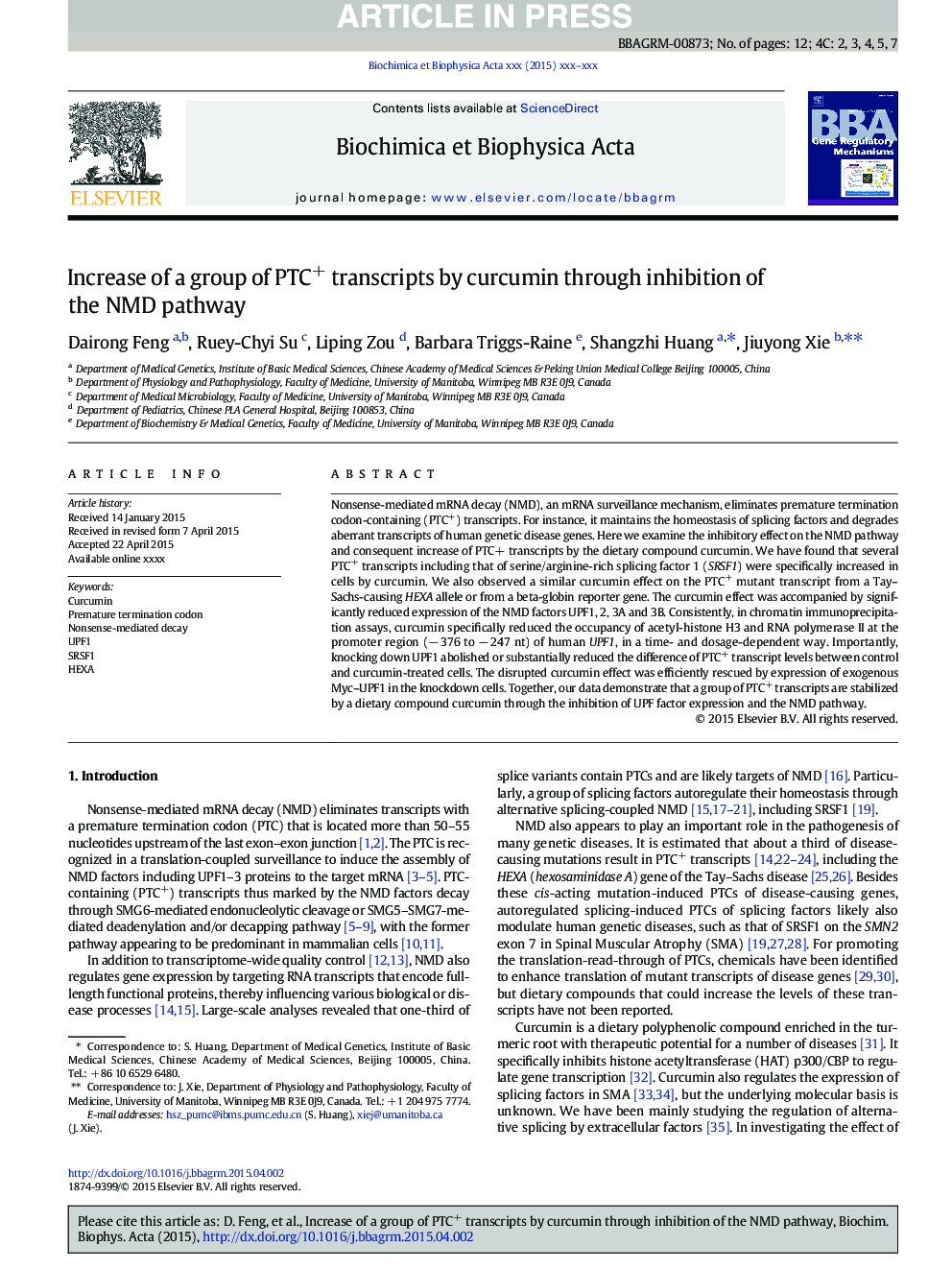| Article ID | Journal | Published Year | Pages | File Type |
|---|---|---|---|---|
| 10799027 | Biochimica et Biophysica Acta (BBA) - Gene Regulatory Mechanisms | 2015 | 12 Pages |
Abstract
Nonsense-mediated mRNA decay (NMD), an mRNA surveillance mechanism, eliminates premature termination codon-containing (PTC+) transcripts. For instance, it maintains the homeostasis of splicing factors and degrades aberrant transcripts of human genetic disease genes. Here we examine the inhibitory effect on the NMD pathway and consequent increase of PTC+ transcripts by the dietary compound curcumin. We have found that several PTC+ transcripts including that of serine/arginine-rich splicing factor 1 (SRSF1) were specifically increased in cells by curcumin. We also observed a similar curcumin effect on the PTC+ mutant transcript from a Tay-Sachs-causing HEXA allele or from a beta-globin reporter gene. The curcumin effect was accompanied by significantly reduced expression of the NMD factors UPF1, 2, 3A and 3B. Consistently, in chromatin immunoprecipitation assays, curcumin specifically reduced the occupancy of acetyl-histone H3 and RNA polymerase II at the promoter region (â 376 to â 247 nt) of human UPF1, in a time- and dosage-dependent way. Importantly, knocking down UPF1 abolished or substantially reduced the difference of PTC+ transcript levels between control and curcumin-treated cells. The disrupted curcumin effect was efficiently rescued by expression of exogenous Myc-UPF1 in the knockdown cells. Together, our data demonstrate that a group of PTC+ transcripts are stabilized by a dietary compound curcumin through the inhibition of UPF factor expression and the NMD pathway.
Related Topics
Life Sciences
Biochemistry, Genetics and Molecular Biology
Biochemistry
Authors
Dairong Feng, Ruey-Chyi Su, Liping Zou, Barbara Triggs-Raine, Shangzhi Huang, Jiuyong Xie,
